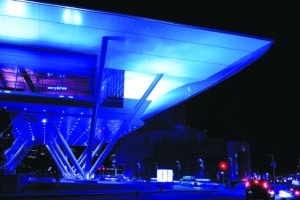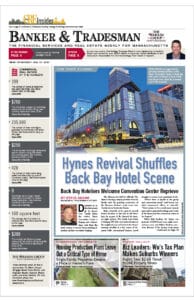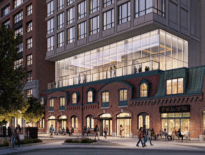
Boston hotel operators are benefiting from the recovery of group demand, driving reservations connected to events at the Boston Convention & Exhibition Center. iStock photo
Although U.S. lodging demand growth has begun to moderate from its post-COVID recovery trajectory, Boston is one of the top performing lodging markets in 2024, second only to Las Vegas, continuing to experience growth above the national average.
In the first quarter 2024, the Boston lodging market’s average daily rate (ADR) improved 3.3 percent from the same time last year, exceeding the average of the top 25 markets, which was up only 2.8 percent.
In terms of occupancy, the Boston market continues to benefit from strong group demand and the continued return of corporate travel with its first-quarter occupancy increasing 6.2 percent from the same period in 2023, which was well above the 0.3 year-over-year decline of the top 25 markets.
Like other gateway markets, Boston’s average daily rate has experienced a significant increase from pre-pandemic levels with Boston’s first-quarter 2024 ADR up $20, or 13 percent, over first-quarter 2019 levels, following year-end 2023’s $25, or 12 percent, improvement from year-end 2019 levels.
While most markets experienced a steady increase in topline revenue as travel resumed to pre-pandemic levels, net operating income growth has struggled to keep pace. With the increased demand, most hotels are now back operating with staffs similar in size to pre-COVID levels, but at substantially higher wage rates driven by the significant increase in inflation in 2022 and 2023.
Wage inflation accompanied by elevated costs of operating goods has offset much of the top line improvement, negatively impacting bottom line margins with the U.S. hotel gross operating profit margin having experienced a year-over-year decline every month since February 2023.

Derek Olsen
Hotel Development Costs Remain Challenging
In addition to operational cost challenges adding strain to underwriting new projects, the combination of continued high interest rates and elevated construction costs has made new hotel development extremely challenging. With increased equity requirements and interest rates for most construction loans remaining well above 9 percent, obtaining financing for new hotels remains difficult and expensive.
Additionally, hotel construction costs remain at all-time highs in the wake of the pandemic. Construction wage inflation is driven by a diminished workforce and continued increases in material prices, compounding the challenges associated with financing accessibility across the U.S., and particularly in Boston where expensive land, a lengthy entitlement process, and union construction has driven hotel construction costs even higher.

Marissa Galuppo
As a result, recent hotel openings in Boston proper have been largely limited to the 147-unit Raffles Back Bay, 212-unit Canopy by Hilton, 1,054-unit Omni Boston Hotel at the Seaport, and the dual-branded 411-unit Homewood Suites/Hampton Inn Marine Wharf. Aside from the citizenM Back Bay, which is anticipated to open in the third quarter of this year, new hotel construction activity in Boston remains limited, while the planned conversion of part of the Sheraton Boston to Northeastern University student housing will offset some of the already muted new supply.
Looking ahead, as group and corporate demand continue to grow adding to an already strong leisure base, the picture for existing Boston hotels is bright with the stifled development environment poised to benefit existing hotels. With limited new supply growth, hotels with an effective revenue strategy in place should be able to continue to grow ADR at levels above the U.S. average, particularly during peak compression nights given Boston’s strong citywide events calendar, which will be essential to improve profit margins in a continued high-cost operating environment.
Derek Olsen is managing director and executive vice president and Marissa Galuppo is a senior associate at CHMWarnick.





